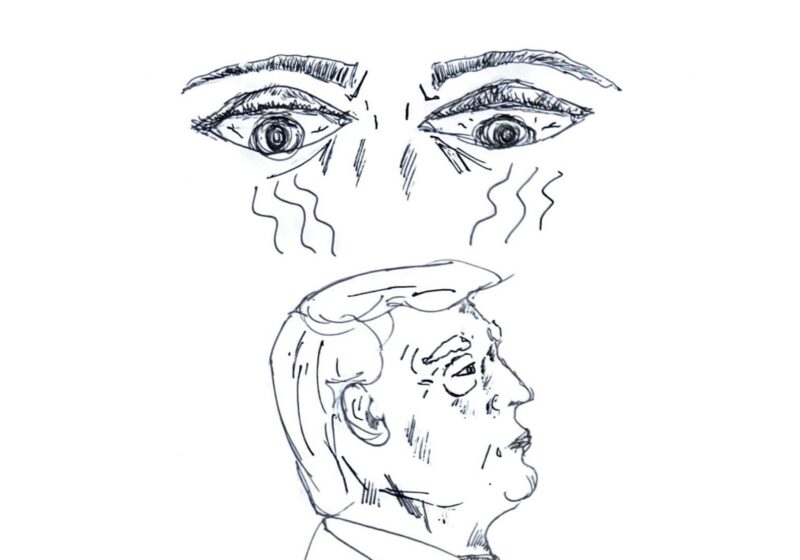The Pixies are perhaps the most influential bands of the late ‘80s. Their sound can be found in the most alternative groups known today, including Nirvana, the Strokes, and Sound Garden. Since their original success with their most famous album, “Surfer Rosa,” which included the track “Where Is My Mind,” notably showing up in the film “Fight Club,” the original band members—and sound—has changed. Due to tensions within the band, bassist Kim Deal has moved to other projects, and has since been replaced with Paz Lenchantin, who has worked with bands such as Queens of the Stone Age. “Head Carrier,” the Pixies’ newest album released on Sep. 30, was Lenchantin’s first album debut as a Pixie.
Because the Pixies’ were trending on WRUR FM radio, the band reached out and organized an interview with their original and current drummer David Lovering.
Isabel Drukker: How is it going with Paz as the new bassist?
David Lovering: It’s fantastic. We’re very fortunate to have the audience—they like her, they like Paz, they do. It couldn’t be better. The crazy thing about it is that she’s been with us for three years, she’s been a Pixie. And to Joe, to myself, and to Charles, she’s still the new woman, you know what I mean? And because of that, we’re still behaving extra well. You know what, you mind yourself around her because she’s a lady. And because of that, we’re getting along fantastic, and for years now. It’s great.
ID: Since she’s already on the subject, I know that the beginning of “All I Think About Now” opens up with pretty much the same chords as “Where Is My Mind?” I was wondering what the group’s intention was with doing that, and also what the intention of having her [Paz] sing that was.
DL: It’s funny, because we have an issue with “All I Think About Now” and “Where’s My Mind?” on the last four shows we were at, which we had last week. And the thing was that we had to be a little thoughtful with where we placed “Where Is My Mind?” As you say, it sounds like the same chords. But when you listen to it, it is reminiscent of “Where Is My Mind” and how it plays, but it’s not it—it’s a different kind of pattern, and things like that. But there’s a lot of speculation. We always do it near the end, because once it’s out of the way, we can play “All I Think About Now” and no one’s going to think it’s “Where Is My Mind?”
ID: There has been some speculation—I’ve heard a few people saying they consider it a thank-you letter to Kim Deal. Black was quoted saying, though, that he hoped the lyrics were different enough to kind-of take out of that context, and not make it strictly about the band history. Do you have any opinions on that?
DL: I know it’s a thank-you letter, I don’t know—It’s an interesting concept people have been talking about. We had a list of songs for Head Carrier, we rehearsed them. And we had three weeks to do it. We had two weeks left in the studio and get down all the songs. Paz said “I have an idea for something.” We worked on this and Joe said “You sing it, I’ll write the lyrics.”
The next day, we recorded. And the crazy thing about it: it’s my favorite song on the album and it’s very Pixies-sounding, especially with Joe’s riff on the guitar. But we recorded the next day, and Paz wrote it! That’s what’s crazy to me, it’s really good, and as far as the letter part to me, I don’t know—I don’t read into it.
ID: As a whole, about “Head Carrier,” which came out just a little over a month ago, what were the ambitions of the album, would you say?
DL: I don’t think there was any formula with it. When we did “Head Carrier,” we had the luxury of all that pre-production, it was the one difference that I think affected it. Other albums, we might have had less time to really work on the song or more time in the studio. Because of that, we recently did everything.
Again, there’s no formula. It’s hard to compare the styles because it’s another album, I couldn’t compare “Head Carrier” to “Bossanova,” or “Surfer Rosa.” They’re very different. It’s just whatever that song is now. Some of them are a little bit bolder or a little more perky, and that’s really fun. They seem to be going over well live, and I’m sure they’re only going to get better.
ID: We spoke a little about this earlier: reviewers are saying that the newest album has a new sound, which, of course, a new bassist, time has passed, and everything. Did you have any comments on that?
DL: I think it’s such a great experience recording and everything and working on the album, and playing it live, and it’s completely fun to play.
ID: I know that y’all are touring in March—beginning in South Africa, correct? Any thoughts on that, or thoughts on the future for the Pixies?
DL: We’re going to a place where we’ve never been—we’ve never been to South Africa. From what I understand there, they want to see us there, that’ll be fantastic, it’ll be such a trip. It’s interesting when we get to go to new places because it happens, once in a while. I mean, we still haven’t been to a lot of places, but it makes it a little more fun when it’s something new and it’s exciting. Then after that, I think Australia, Japan, New Zealand, South America, the States, New York again. I don’t know where after that, but I think it’ll be wash, rinse, repeat.
ID: I think we’re about out of time, so do you have any other comments?
DL: Just it was a pleasure speaking with you and thank you. I think if the band plays, especially with all these shows we have coming, by the time we get to Rochester, I think we’ll be very good.





